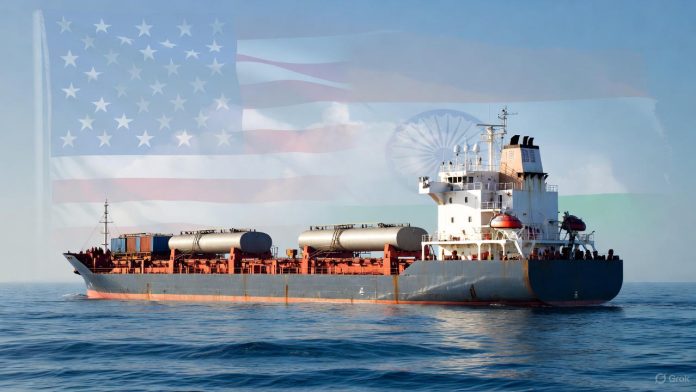The United States has imposed sanctions on several Indian nationals and companies for allegedly helping Iran sell petroleum and petroleum products. The U.S. said these activities allowed Iran to earn money that supports groups and actions considered unsafe for American forces and allies.
The sanctions were announced by both the State Department and the Treasury Department, as part of broader efforts to put strong pressure on Iran’s oil trade, a major source of its revenue.
Those added to the Treasury Department’s Office of Foreign Assets Control (OFAC) Specially Designated Nationals (SDN) List include Zair Husain Iqbal Husain Sayed, Zulfikar Hussain Rizvi Sayed, RN Ship Management Pvt. Ltd, and TR6 Petro India LLP. Their assets under U.S. jurisdiction are frozen, and they cannot deal with American companies or citizens.
The sanctions also target several vessels and shipping networks believed to have transported Iranian oil internationally. This includes ships owned, operated, or managed by companies linked to Varun Pula, Iyappan Raja, and Soniya Shrestha.
U.S. Allegations on How the Shipments Worked
The U.S. says shipping companies and traders in India, Panama, Seychelles, and other countries helped Iran move crude oil, liquefied petroleum gas (LPG), and bitumen, allowing Iran to make oil sales that would otherwise have been blocked.
TR6 Petro India LLP was flagged for allegedly importing over 8 million dollars’ worth of Iranian bitumen between October 2024 and June 2025, knowingly taking part in a major transaction involving Iranian petroleum products.
The Comoros-flagged PAMIR, operated by Bertha Shipping and owned by Varun Pula, reportedly carried nearly four million barrels of Iranian LPG to China since July 2024. The SAPPHIRE GAS, managed by Evie Lines Inc and owned by Iyappan Raja, allegedly moved over one million barrels of Iranian LPG to China since April 2025. The NEPTA, run by Vega Star Ship Management Pvt. Ltd and owned by Soniya Shrestha, has reportedly transported Iranian LPG to Pakistan since January 2025.
The Treasury Department said these shipments are part of a “dark fleet” network that helps Iran generate revenue used to support armed groups, nuclear activities, and disruptions to major global trade routes.
Baemin faces possible sanction as FTC reviews mounting allegations of pressure on restaurants
Sanctions Target Multiple Countries and Linked Networks
The U.S. has added entities, ships, and aircraft from multiple countries to its sanctions lists. The State Department announced 17 new entries from nations including India, Panama, and Seychelles, while the Treasury Department added 41 more entities, individuals, vessels, and aircraft. These actions target networks that help Iran move and sell petroleum products.
In October, the U.S. had already sanctioned over 50 individuals, companies, and vessels linked to Iranian crude oil and LPG exports, some connected to Indian nationals. Officials said these groups helped Iran earn billions through petroleum sales.
The U.S. said Iran uses this revenue to support regional proxies and carry out activities considered destabilising. Authorities added that they will continue targeting maritime operators involved in transporting Iranian crude and petroleum products.
These measures are part of National Security Presidential Memorandum 2 (NSPM-2), which directs the U.S. to apply maximum pressure on Iran by targeting tankers, shipping firms, and petroleum traders tied to its energy sector.
Impact of Earlier and Current Actions
The latest sanctions follow earlier U.S. actions this year that targeted six Indian companies involved in transactions with Iranian petroleum and petrochemical products. The U.S. said these measures aim to limit the funds Iran can access from its energy exports.
Treasury Secretary Scott Bessent said the department is working to cut Iran’s cash flow by targeting networks that move and sell Iranian petroleum. The U.S. added that it will continue these efforts as long as Iran uses its revenue for activities that threaten American forces and allies.
The sanctions now affect a broad range of shipping operators, energy traders, aviation-linked businesses, and individuals. The restrictions freeze assets, block transactions, and make international operations more difficult for all those listed.


